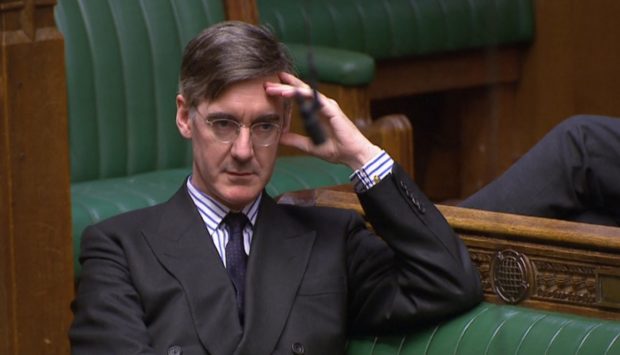Jacob Rees-Mogg was condemned last night for blocking fishing reforms that could be worth an additional £540 millon-a-year and 5,000 new jobs to the seafood industry.
The Commons leader said it was “not essential” for the Fisheries Bill to become law before Brexit – inviting accusations that the new UK administration viewed fishing as “expendable”.
Michael Gove, who introduced the Bill in the Commons last year, said it would be a “major milestone” in delivering the UK Government’s pledge to take back control of British waters.
Since then, however, the legislation has languished in “parliamentary limbo” with no clear sign it will become law.
Orkney and Shetland MP Alistair Carmichael yesterday called on the UK Government to explain the bill’s progress, to which Mr Rees-Mogg said: “The Government is satisfied that all the bills that are needed prior to leaving the EU are in place.
“It is not essential that these bills make progress.
“That does not stop the Bill being amended when it comes back and amended in a way that does not achieve Government policy and therefore it is unlikely that they will make progress.”
Commenting after the exchange Mr Carmichael said: “Jacob Rees-Mogg argues that the Fisheries Bill cannot be moved forward, simply because it might be amended.
“If that is their logic, then you wonder why they introduce any legislation at all.
“His argument lays bare the sense of entitlement and arrogance that defines the way that this Government goes about its business.”
Mr Carmichael added: “It will not be lost on fishermen that Jacob Rees-Mogg regards the first Fisheries Bill to be debated in the Commons for years as “not essential”.
“His attitude echoes his 1970s predecessors, who described the industry as “expendable”.
“Nigel Farage, Jacob Rees-Mogg and others are quick to use the fishing industry as a political football when it suits their purposes.
“At any other time, they clearly could not care less.”
The Bill, if passed, would end the current automatic rights for EU vessels to fish in UK waters.
It would also give powers to ensure that the UK can set its own fishing quota and days at sea, which it will negotiate as an “independent coastal state”.
The powers of the Marine Management Organisation, the Scottish Government and Welsh and Irish devolved administrations in protecting the marine environment would also be extended.
